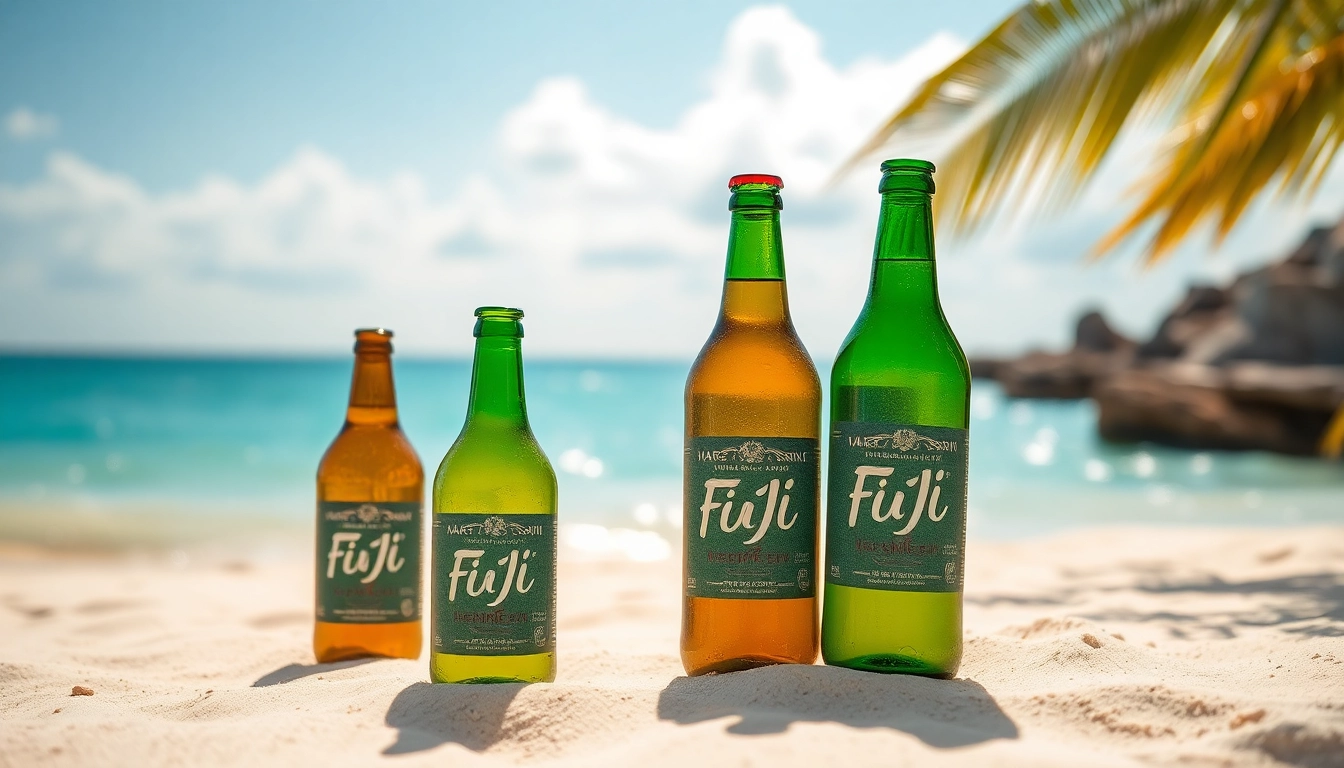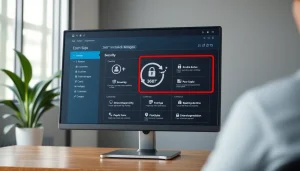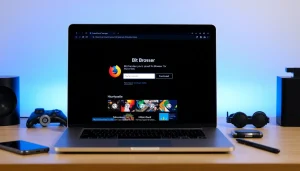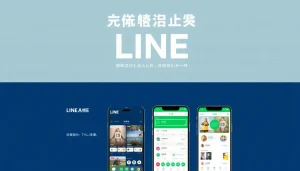FDA Recall Alert: What You Need to Know About Fiji Water Bottles Recalled
Understanding the Recall of Fiji Water Bottles
In a significant development for consumers and bottled water enthusiasts alike, the U.S. Food and Drug Administration (FDA) announced the recall of Fiji water bottles recalled on May 23, 2024. The recall affects approximately 78,533 cases of Fiji Natural Artesian Water, translating to about 1.9 million individual bottles. This situation has raised eyebrows and concerns regarding water quality and safety standards, prompting us to take a closer look at the implications and necessary actions.
The FDA Announcement and Key Details
The formal announcement from the FDA highlighted the nature of the recall as a Class III recall, which is designated for products that may cause consumption of harmful substances but are unlikely to cause significant health risks. According to the FDA, the recall was initiated due to concerns over contamination that could have resulted from elevated levels of manganese and certain types of bacteria detected in the water.
Fiji Natural Artesian Water, known for its pristine origins in the islands of Fiji, has garnered a loyal following due to its premium branding and perceived health benefits. However, this recall serves as a stark reminder that even well-reputed brands are not immune to quality control issues.
Reasons Behind the Fiji Water Bottles Recalled
The primary catalyst for the recall was the detection of manganese at excessive levels, along with bacterial contamination. Manganese is an essential trace element found in various foods and water; however, when ingested in significant amounts, it can lead to serious health risks, including neurological damage. The FDA, alongside Natural Waters of Viti Limited, took immediate action to prevent potential health hazards.
Additionally, the presence of bacteria in bottled water is alarming and generally within the realms of strict health safety codes. Water that contains pathogenic bacteria poses immediate health risks to consumers, especially vulnerable populations like children and the elderly. Detailed testing results suggested that three specific genera of bacteria could be present, prompting the need for urgent consumer advisories.
What Consumers Should Know
As a consumer, it’s imperative to understand how this recall impacts your health and safety. Although the Fiji Water brand is generally regarded as safe, the contamination incident is a call to action for all bottled water consumers to exercise caution and due diligence.
Awareness of the recall itself is crucial. Consumers should stay informed about the batch numbers and dates of the recalled products. Ongoing communication from the FDA and the manufacturer about the recall, safety tips, and future preventive measures are essential to restore trust.
Health Risks Associated with Recalled Fiji Water
The implications of consuming contaminated water extend beyond mere inconvenience; they can pose serious health risks. Understanding these risks requires a closer examination of the contaminants involved.
Impacts of Manganese on Human Health
Manganese is known to be vital for various biological functions, but excessive ingestion can lead to toxicity. Chronic exposure to high levels of manganese can manifest in neurological issues akin to Parkinson’s disease, characterized by tremors, difficulties with coordination, and changes in mood and cognition. The Minnesota Department of Health has highlighted these risks in their public health advisories, signifying an urgent need to minimize manganese exposure.
For healthy adults, occasional exposure may not lead to immediate symptoms; however, long-term ingestion should be avoided to preserve mental and physical health. Concern escalates when the exposure involves children or pregnant women, who are more susceptible to the harmful effects of heavy metals.
Identifying Potential Contaminants in Bottled Water
There are several indicators of contaminated bottled water, including unusual taste, color, or odor. Moreover, while such sensory assessment can be a preliminary check, reliance solely on these characteristics isn’t adequate. Testing laboratories can perform detailed analysis for the presence of bacteria, viruses, and chemical contaminants. Consumers should know the lot or batch numbers of their products, as these can aid in identifying affected bottles. Transparency in recall information helps consumers avoid health risks associated with the consumption of contaminated water.
How to Assess Water Safety Before Consumption
As a consumer, taking charge of water safety involves being educated about reputable brands and their sourcing practices. Always check for third-party testing certifications and general production information. Regularly reviewing updates from local health organizations and the FDA regarding bottled water safety can empower consumers.
Furthermore, purchasing bottled water that clearly lists its mineral contents and source can also contribute to informed choices. For enhanced safety, consider having home water testing kits that can help measure various contaminants, although this is less common in bottled water scenarios.
Steps for Consumers After the Recall
In light of the recall, consumers must take proactive measures to ensure their safety and enhance their knowledge about product recourse.
How to Check if Your Fiji Water is Affected
To ascertain whether your Fiji Water purchase falls under the recall, check the following:
- Refer to the batch or lot number printed on the label. Recalled batches have been documented by the FDA.
- Assess the purchase details. If obtained from authorized retailers or online platforms such as Amazon, verify against the recall lists issued by the FDA.
- Consult your local health department for updated information regarding the recall and safety guidelines.
Returning and Replacing Recalled Bottles
If you possess bottles that are part of the recall, it is crucial to handle them according to guidance from the FDA and the manufacturer:
- Do not consume any affected bottles. Follow the safety recall protocols advised by health officials.
- Retail outlets where you purchased the recalled water may accept returns. Keep your receipt handy for hassle-free exchanges or refunds.
- Engage with customer support from Natural Waters of Viti Limited for directions on the return process and submit any relevant complaints or inquiries.
Staying Updated on Future Recalls
In an age of information, utilizing technology to stay updated is vital. Consumers can subscribe to FDA alerts, utilize recall notification apps, and engage with their favorite bottled water brands on social media for instant updates concerning recalls. Being proactive ensures that you remain informed about health and safety advisories that affect the products you consume.
Implications for Fiji Water’s Brand Reputation
This incident serves as an inflection point for Fiji Water, influencing both consumer perceptions and the company’s market strategy moving forward.
Consumer Trust and Water Safety Standards
The recall has undoubtedly shaken consumer trust, as many individuals rely on Fiji Water for its perceived purity and quality. Rebuilding this trust will demand significant efforts in maintaining rigorous safety standards. Transparency from the brand regarding contamination causes and preventive measures taken in the future will play a crucial role.
Brands must also ensure that they engage resorting to stringent internal testing protocols and establishing third-party audits to enhance credibility.
How Fiji is Addressing the Recall
In response to the recall, Fiji Water has initiated public relations campaigns aimed at transparency and responsibility. Communicating how the contamination occurred, and what corrective steps the company is taking will be pivotal in mending public trust.
Furthermore, implementing robust safety checks and assuring consumers of enhanced quality assurance programs can contribute to brand recovery. Engaging with the FDA and other health organizations can pave the way for credible partnerships that bolster confidence in the brand.
Future Strategies for Brand Recovery
In the long term, Fiji Water might consider diversifying its product line by also introducing mineral testing labels for consumers. Demonstrating commitment to health standards will not only benefit the brand’s image but also promote accountability within the industry. Additionally, leveraging consumer feedback mechanisms can provide critical insights into customer perceptions and pave the way for improvements.
Conclusion: Staying Informed on Bottled Water Safety
As this incident illustrates, the safety of bottled water cannot be taken for granted. Consumers must remain vigilant and informed about the products they consume. Strong emphasis on credible sourcing, quality testing, and regular updates from manufacturers can significantly improve safety in the bottled water industry.
Resources for Additional Information
Familiarizing oneself with relevant resources is central to staying updated. Organizations such as the FDA, the Environmental Protection Agency (EPA), and local health departments provide exhaustive insights into water safety protocols.
Importance of Due Diligence in Product Safety
Practicing due diligence in understanding product recalls and safety alerts can save lives. Consumers are encouraged to actively participate in discussions regarding product safety, share their experiences, and voice concerns when necessary. Over time, this collective awareness will pave the way for heightened standards across the bottled water industry.
Community Support Following the Recall
Building a community around safety awareness ensures that consumers are not navigating these issues alone. Forums, social media groups, and community gatherings can serve as platforms for sharing knowledge about product safety and personal experiences. Together, the informed community can drive the demand for higher standards of safety in bottled water.













Post Comment